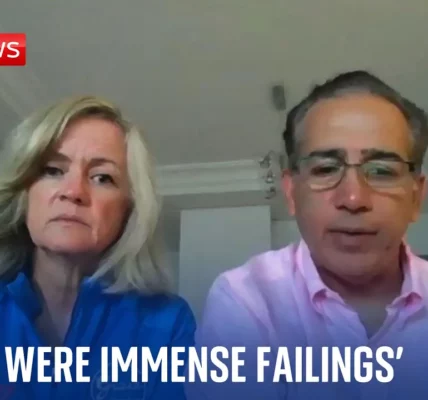Allegations Against Muhammad Al-Fayed: A Deep Dive into the Justice System’s Failures

This article explores the serious allegations of sexual abuse against the late Harrods owner, Muhammad Al-Fayed, and critically examines the decisions made by the Crown Prosecution Service (CPS) in 2009 and 2015. With insights from Dame Vera B, the former Victim’s Commissioner, we uncover systemic issues within the criminal justice system that have left victims feeling unsupported and let down.
Introduction to the Allegations
The allegations surrounding Muhammad Al-Fayed, who passed away in 2023, have resurfaced considerable discussion regarding the treatment of sexual abuse claims within the UK’s criminal justice system. Despite serious accusations from victims, including a notable case from 2009 involving a 15-year-old girl, the CPS made decisions not to charge him based on perceived weaknesses in evidence. This has raised alarms about the systemic failures in supporting victims and the high burden of proof required for prosecution, which often leaves many victims unheard and without justice.
Overview of the Crown Prosecution Service’s Decisions
The Crown Prosecution Service (CPS) plays a crucial role in the criminal justice system by deciding whether to charge individuals based on the evidence presented to them. In the cases concerning Al-Fayed, the CPS evaluated allegations made over the years but ultimately decided not to proceed with charges due to the stringent criteria they employed during their assessment.
Historical Context of the CPS’s Approach
From 2015 to 2021, during Dame Vera’s tenure as Victim’s Commissioner, the CPS was criticized for its overly cautious approach, which prioritized conviction rates over the pursuit of justice for victims. This led to a culture where only cases with a perceived high likelihood of success were taken forward, effectively sidelining numerous legitimate allegations.
Impact on Victims
The implications of this approach are profound:
- Victims feel unsupported and discouraged from coming forward.
- Many cases involving sexual offenses remain unaddressed.
- The bar for what constitutes sufficient evidence is set exceedingly high.
The Role of Leadership in Systemic Failures
Leadership within the CPS and police forces is a critical factor in the handling of sexual abuse cases. Dame Vera highlighted how the leadership’s focus on maintaining high conviction rates has inadvertently led to a culture of negativity surrounding sexual offenses.
Leadership Accountability
Effective change requires accountability at the top levels. The CPS’s leadership must be willing to re-evaluate its strategies and prioritize victim support over statistical success. Key leaders must advocate for:
- Improving training for staff on handling sexual abuse cases.
- Developing a more victim-centered approach to prosecution.
- Ensuring transparency in decision-making processes.
The New Direction for the CPS
With recent changes in leadership, there is optimism for reform within the CPS. The new Director of Public Prosecutions has expressed a commitment to addressing the historic failures and implementing a more robust strategy against violence toward women and girls.
Strategies for Improvement
The following strategies are crucial for the CPS moving forward:
- Establishing clearer guidelines for evaluating sexual offense cases.
- Encouraging collaborative efforts with law enforcement agencies.
- Creating outreach programs to support victims in coming forward.
Conclusion: A Call to Action
The allegations against Muhammad Al-Fayed serve as a stark reminder of the ongoing challenges within the criminal justice system, particularly in how it addresses sexual abuse claims. As Dame Vera emphasized, the systemic misogyny and the high bar for evidence have left countless victims feeling let down and abandoned.
It is imperative for the CPS and police forces to acknowledge these failures, implement necessary reforms, and prioritize the voices of victims. Only through sustained commitment to change can we hope to create a justice system that is fair, equitable, and supportive of those who bravely come forward to share their experiences.
For more information on this topic, consider reading our related articles on support for sexual abuse victims and the reforms needed in the justice system.
“`




